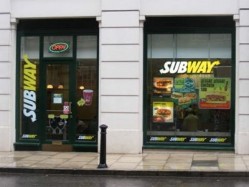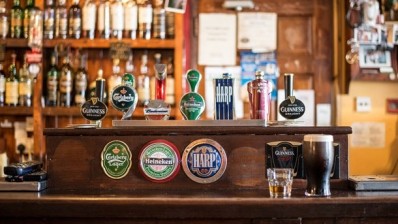Calorie labelling does not influence diner choice, New York study finds

The study by the New York Health Department, which introduced a mandatory calorie labelling scheme in 2008, showed that just 15 per cent of diners made use of the new information to make healthier choices.
These diners subsequently reduced their intake by an average of 106kcals compared to those who did not see or use the information.
Around 15,000 Customers at 168 randomly selected locations of New York’s top 11 fast food chains were questioned a year before the state introduced the calorie labelling regulations, and nine months after full implementation of the law.
The report concluded that ‘no overall decline in calories purchased was observed for the full sample’, lending weight to arguments that a similar scheme in the UK will have no effect on consumers’ eating habits.
The British Hospitality Association’s chief executive Ufi Ibrahim recently branded evidence to support calorie labelling as 'sketchy', and spoke out against a potential move to make the move law in the EU.
“Where is the evidence that customers really are willing to change their habits? It hasn’t come out of NY, it hasn’t come out of any other evidence. The early adopters’ trial here in the UK didn’t provide that evidence either," she said.
“It basically seems that when customers go to restaurants they sit down and they want to have that chocolate fondant - they have already decided to do so - and it really doesn’t matter if you tell them the calorie content. That for them is a treat, it’s a special occasion. They don’t want to be taught that they shouldn’t be eating it once they’ve decided to go there and consume it.”
Reductions by other means
However three major fast food chains, which accounted for 42 per cent of the customers surveyed, showed a significant reduction in the average number of calories purchased by each diner.
McDonald’s reduced each purchase from 829kcal to 785kcal; Au Bon Pain reduced each purchase from 555kcal to 475kcal; and KFC made a reduction from 927kcal to 868kcal.
However it is thought these chains changed their menus in light of the new regulations and introduced healthier options.
By contrast, Subway, which also displayed calorie information, saw calorie intake increase by almost a fifth, as it encouraged consumers to purchase larger portions.
Dr Susan Jebb, a nutrition expert from the Medical Research Council, who has advised the government on its strategy, told the BBC that she expected calorie information to have more of an impact in the UK.
"We are much more used to looking at front-of-pack labelling in supermarkets so I would expect more people to use calorie information than the one in six in New York.
"But this study also illustrates the importance of how the restaurant or food chain acts. It is going to require a combination of factors to make a big difference."
So far 28 hospitality companies, encompassing 4,000 high street outlets, have signed up to the Department of Health’s Responsibility Deal to commit to providing calorie information on food and non-alcoholic drinks on their menus, amongst other measures, from 1 September this year.

















